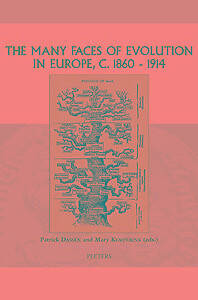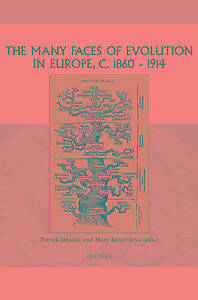
- Retrait gratuit dans votre magasin Club
- 7.000.000 titres dans notre catalogue
- Payer en toute sécurité
- Toujours un magasin près de chez vous
- Retrait gratuit dans votre magasin Club
- 7.000.0000 titres dans notre catalogue
- Payer en toute sécurité
- Toujours un magasin près de chez vous
Description
The idea that the world, not only of man but also of nature, was subject to a continuous process of change has taken strong root since the beginning of the nineteenth century. In 1859, Charles Darwin demonstrated that these changes were the result of immutable, eternal laws - although everything was subject to change, it was only in accordance with these laws. from the second half of the nineteenth century down to the First World War, this vision of change and determination was interpreted in many different ways, both pessimistically and optimistically. It is striking that a fear of degeneration often went hand in hand with a belief in an upward evolutionary process and was not confined to any particular political spectrum. This volume, number XIV in the series, contains the papers presented at a workshop on the reception and interpretation of the theory of evolution, organised by the editors in April 2003. It covers the many, often irreconcilable faces, of the theory of evolution concerning not only the concrete substantive interpretation but also the many different fields of late nineteenth century thought by concentrating on cultural life in the broadest sense - political, social, scientific and artistic, both literature and the visual arts. This volume illustrates the versatility of the concept of evolution, and of degeneration as well, with the emphasis on the Netherlands. It not only presents the contradictions and many-sidedness of the post-Darwinian world, but also the continuity with the world before 1860. Moreover, it reveals one clear co-ordinating theme, namely that the theory of evolution was used as justification for many different ideologies and practices.
Spécifications
Parties prenantes
- Auteur(s) :
- Editeur:
Contenu
- Nombre de pages :
- 165
- Langue:
- Anglais
- Collection :
- Tome:
- n° 14
Caractéristiques
- EAN:
- 9789042916210
- Date de parution :
- 04-07-05
- Format:
- Livre relié
- Format numérique:
- Genaaid
- Dimensions :
- 167 mm x 239 mm
- Poids :
- 861 g

Les avis
Nous publions uniquement les avis qui respectent les conditions requises. Consultez nos conditions pour les avis.






